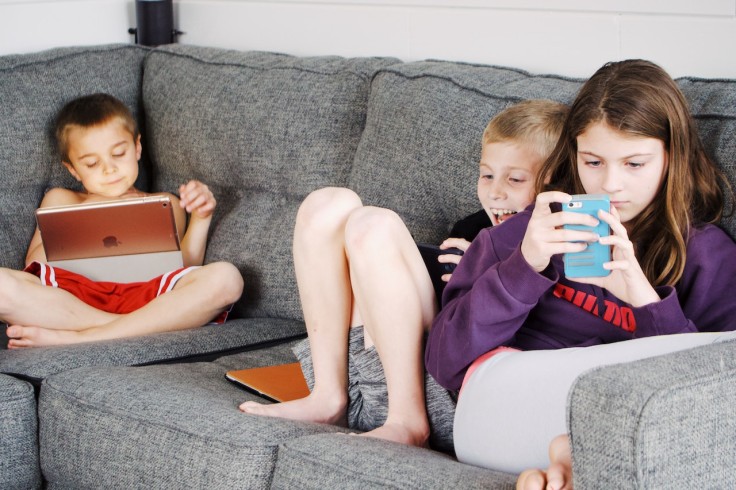
A child psychologist warns parents about how taking away their kids' mobile phones and other electronic gadgets as a form of punishment can be a terrible idea.
The internet and electronic devices are two of the top causes of parental stress and worries today. They are concerned about what is being fed to their kids and how these affect their children's well-being.
A survey published by Pew Research revealed that 66 percent of American parents express that parenting is more challenging these days than it was 20 years ago because of social media and smartphones.
Most parents also worry about the high amount of time these young ones spend online instead of enjoying the fresh air and nature outside, face-to-face interactions with family members and friends, reading actual books, or playing games on the field.
And while it can be so tempting for parents to confiscate all these devices and force the children to go out and play or spend time with the family, a psychology expert negates the idea telling parents that it can be one of the greatest parenting mistakes they would ever do.
Ineffective approach and dangerous effects
According to child psychologist Dr. Claire Halsey, this "all-or-nothing" approach will only put parent-child relationships at risk as it can produce a lot of conflicts. But most of all, the approach is ineffective in teaching children how to make positive choices about their screen time regarding where they should use their devices and for how long.
"As adults, we struggle to put our phones down, and vowing not to use devices at all is soon overturned. Helping children learn to manage their screen time, and know when it's not okay, will help them the most. Teaching by example is a great way to get this across," Dr. Halsey emphasized in an interview with The Mirror.
Parents can confiscate for a few minutes to make a point, but not for days.
In parenting, parents can be effective when there is consistency and a commitment to their words and promises. The expert explained that confiscating or banning children's gadgets for an extended period is a real challenge.
It can also dangerously lead to children hiding from their parents if they are using their devices and can go as far as not telling them that they have been online and seen harmful or distressing content. And, as parents, that is the last thing they would want to happen as open communication is crucial for children to be protected against what they are exposed to online.
Thus, parents are encouraged to limit screen time instead of fully taking away their devices, especially when the kids need to study and sleep.
Read Also: Digital Hell: Young Parents Struggle to Handle Kid's Screen Time Habits, Prompts Family Tension
How to limit screen time
Chronicle Live shared Dr. Halsey's parenting tips on how to manage excessive screen time without parents doing the extreme act of seizing their children's gadgets for long periods.
1. Help the kids reduce screen time before they go to sleep.
Have the rule that gadgets are not to be taken into the bedrooms, especially at night. This will help reduce screen time before they doze off.
2. Set family limits and create screen-free zones.
The family should agree on when all are committed to switching off their devices, like during mealtime or short car journeys. This will reduce screen time and increase family bonding and interaction. This is also an excellent opportunity for parents to model their discipline with their own gadgets.
3. Negotiate access.
Make children understand that they need to compromise sometimes. Encourage them to do household chores or finish their assignments to be rewarded later with limited screen time.
4. Look for opportunities to increase physical activity or do something as a family.
Parents need to be intentional about doing outside and physical activities together. It can be as simple as walking in the neighborhood every morning to keep the children off their gadgets first thing in the day. Again, model it to the children. Let them see how their parents value time off with the devices and more time with them.
5. Keep the conversation open and honest.
The children, especially the teens, might feel they need to turn to the screen to socialize. Thus, parents should be cautious in cutting this form of communication. Explain to the children the importance of having a "healthy mix of 'real life,'" and online interaction and how dangerous it is to have too much of just virtual socialization.